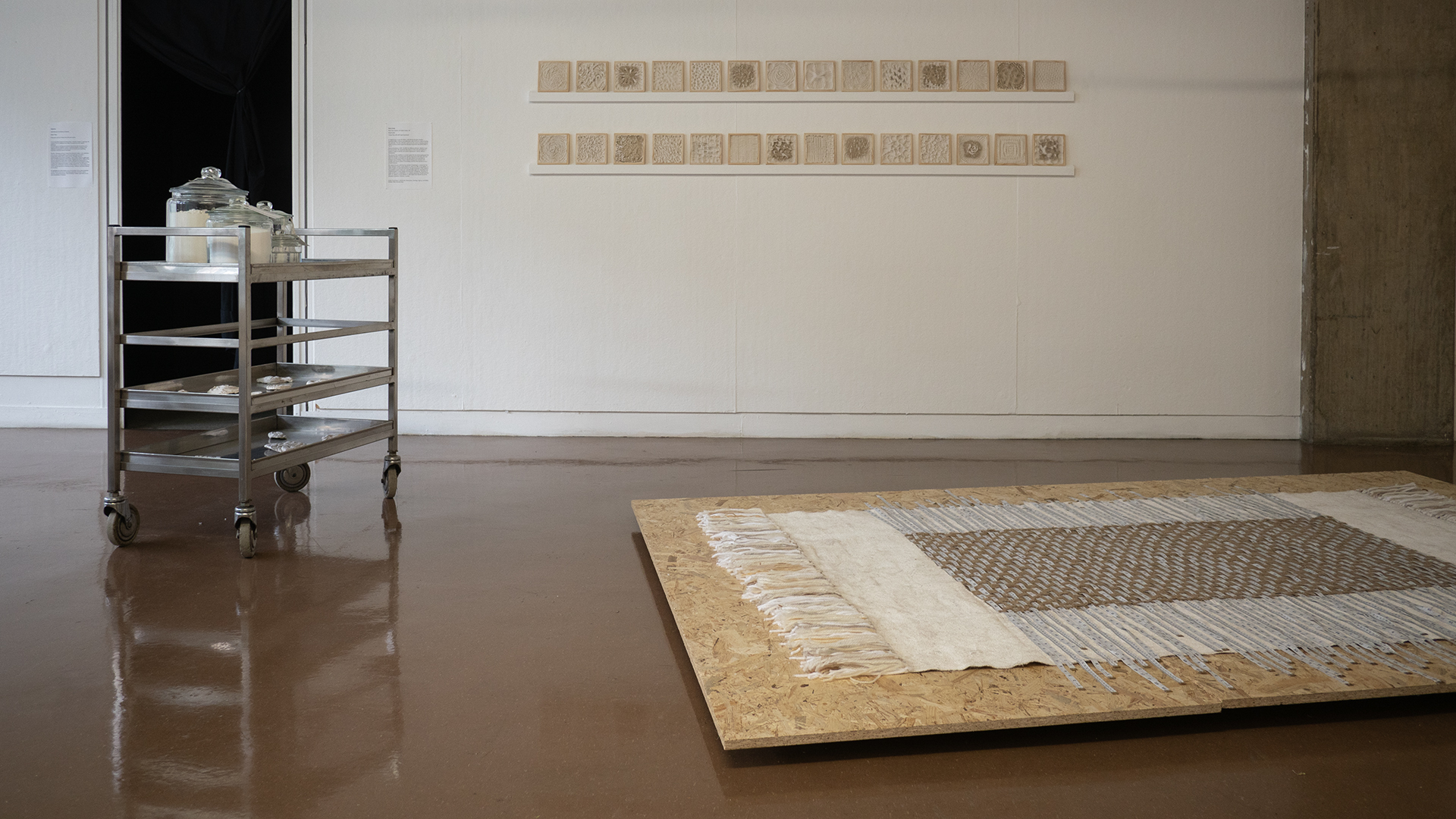Emma Jacobs,
Class of 2024
Early Years Teacher, Art Subject Leader, UK
‘Carpet Time with Salt Dough Experiments’
Class of 2024
Early Years Teacher, Art Subject Leader, UK
‘Carpet Time with Salt Dough Experiments’
In England, all 4–5 year-old children undertake the Reception Baseline Assessment (RBA) in literacy and mathematics within the first six weeks of starting their education. The data collected is used as an entry point to measure progress made by primary schools against the Standard Assessment Tests (SATs) taken in Year 6.

Since its introduction in 2021, the RBA has shifted practitioners’ attention away from art provision. This assessment takes place at a time when the freedom to explore a range of materials and creative experiences is vital for children’s development.
The artwork in this installation is a protest against the data driven pedagogies that dominate education. It questions the need for assessment in the early years and asks us to consider who benefits from the data collected. By reconsidering dominant ways of thinking, I hope to disturb existing power structures and consider more diverse systems of knowledge production that represent art as a powerful educator.
My research focuses on the learning potential of playdough, a common but low-status material in schools, paying attention to what it can offer young children, as well as myself as an artist and practitioner. Through examination of this material, I have started to explore where new materialist ideas might lurk underutilised and underdeveloped in nursery settings and classrooms. Investigating, ‘the power of matter and the ways it materializes in our ordinary experiences’ (Coole and Frost, 2010, 1), requires us to pay attention to what objects and materials can do for education as partners, resources, or guides.
Coole, D and Frost, S. (2010) New Materialisms: Ontology, Agency, and Politics. Durham: Duke University Press.
The artwork in this installation is a protest against the data driven pedagogies that dominate education. It questions the need for assessment in the early years and asks us to consider who benefits from the data collected. By reconsidering dominant ways of thinking, I hope to disturb existing power structures and consider more diverse systems of knowledge production that represent art as a powerful educator.
My research focuses on the learning potential of playdough, a common but low-status material in schools, paying attention to what it can offer young children, as well as myself as an artist and practitioner. Through examination of this material, I have started to explore where new materialist ideas might lurk underutilised and underdeveloped in nursery settings and classrooms. Investigating, ‘the power of matter and the ways it materializes in our ordinary experiences’ (Coole and Frost, 2010, 1), requires us to pay attention to what objects and materials can do for education as partners, resources, or guides.
Coole, D and Frost, S. (2010) New Materialisms: Ontology, Agency, and Politics. Durham: Duke University Press.